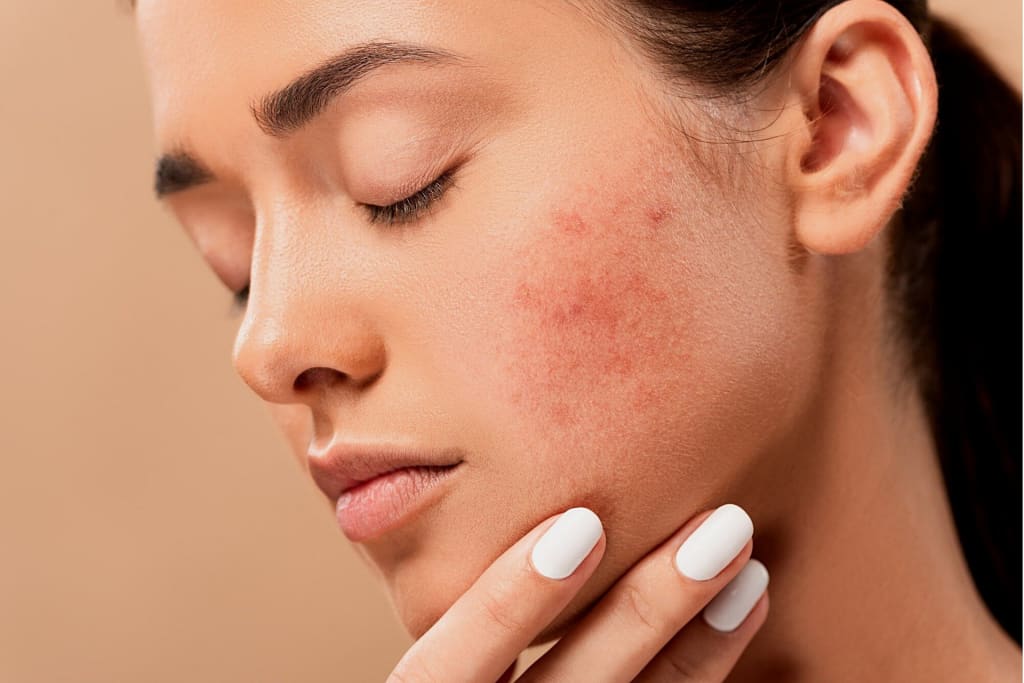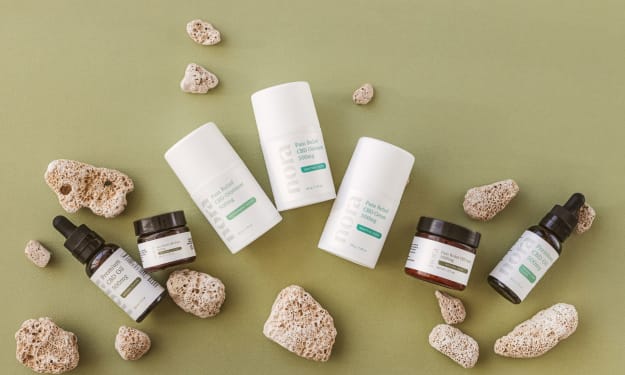Eating Your Way To Glowing Skin
There are certain products that we’d probably never expect to lose momentum, makeup being one. But of course, trends change...

The skincare market is booming as we look to ways to look good effortlessly. Products like tanning drops and skincare ingredients have become more popular as over lockdown, and there has been less use for makeup as we either remain indoors or have our face covered by facemasks when we must venture outside.
We can boost our newfound love for skincare by exploring how different types of food can affect our skin, too.
Lockdown rules have caused us to exercise less and eat more comfort food and takeaways than we usually would as our motivation depletes and the winter months become darker and colder. It’s not surprising then that Google search volume shows that searches for ‘why am I getting spots?’ increased 22 per cent from November 2019 to October 2020 from 590 searches to 720.
It’s all well and good applying an intricate skincare routine day and night, but if you’ve got problem skin and are not seeing any drastic improvements, this could be down to your diet. If you find that skincare isn’t necessarily the sole answer to your problems, then we’re here to help give you the best tips on food to avoid for clear and glowing skin.
The link between food and skin
Have you ever considered the link between food and skin? Food is fuel to our body, and if the fuel is poor or unhealthy, this will show on our skin – you are what you eat, after all! Research by dermatologists has explained that our skin is a window into our overall health and that skin concerns can be linked to diet, giving an indication of what’s going on underneath the surface.
The food that we eat is metabolised and nutrients are delivered to the skin as well as many other major organs. With so many different things going on in your body, eating one piece of healthy food won’t have a massive impact – you must incorporate skin-healthy foods into your diet. So, although you should maintain a skincare routine that suits you, you should be eating healthy foods, drinking plenty of water, and exercising for at least 30 minutes a day to really see the benefits.
Foods to eat
Essential fatty acids
Essential fatty acids such as omega-3s and omega-6s are the building blocks of healthy cell membranes. They also produce the skin's natural oil barrier, which is crucial in keeping skin hydrated, plump, and looking youthful.
Fatty fish like salmon, mackerel, and herring are great for achieving healthy skin. In particular, these omega-3 fatty fishes help reduce inflammation which contributes to redness and acne, as well as making your skin more resistant to harmful UV rays emitted from the sun. UV rays are one of the main culprits for premature ageing and dehydrated, wrinkly skin. So providing your skin with this added protection on top of your daily sunscreen application should help keep your skin in good condition.
Fish oil supplements like cod liver oil can help skin problems that are caused by autoimmune conditions like psoriasis and lupus. Fatty fish is also rich in vitamin E, which is a powerful antioxidant, and zinc, which helps the production of new skin cells and overall health
If you're an avid brunch lover, then this is good news for you! The avocado brunch you like at your favourite café – it's high in healthy fats, which help keep skin flexible and moisturised! Research has found that in a study of over 700 women, those who had a higher intake of total healthy fats had supple and springy skin.
An entire diet for guidance
While we know that vegetables are good for our skin, if you’re looking for thorough guidance on a diet that has proven benefits on the skin, you should follow the low-glycaemic index Mediterranean diet. Glycaemic index refers to how much glucose food contains. A typical Mediterranean diet is made up of olive oil, green vegetables, fresh fruit, nuts, grains and fatty fish while low in sugar and red meat. All of these are full of antioxidants which help repair any incurred skin damage and healthy fats which work to keep your skin elastic.
Foods to cut down or moderate
While the Mediterranean diet has foods with low-glycaemic index, foods that have a high-glycaemic index and refined carbohydrates will give you a sugar rush that will have negative impacts on your skin.
Refined foods
Unfortunately, it’s the most indulgent and comforting foods that have the worst effect. Refined sugars and grains that have been made with white flour, such as bread, cereal, pasta, rice, noodles, sodas, and sweeteners rich in refined carbohydrates can contribute to acne. According to research, those who ate high amounts of sugar had a 30 per cent greater risk of developing acne. These foods increase blood sugar and insulin levels, which makes skin cells grow more quickly and encourages sebum production.
Refined carbohydrates age your skin, as the sugar molecules become 'co-dependent' and attach to proteins like collagen, which keep your skin plump. Your body can't break down this bond which makes your skin appear older. Look out for ingredients like high fructose corn syrup, table sugar, cane sugar, and glucose-fructose.
Dairy
A lot of research has pointed to the possibility that milk products can contribute to acne severity in teenagers, although more research is needed to discover how much dairy is needed to be consumed to aggravate acne.
It is widely known that hormones can affect our skin. When a woman is in her menstrual cycle, an increase in hormones can result in more spots. Dairy products contain casein and whey protein which can also increase levels of hormones that similarly stimulate sebum production. Dairy can also disrupt insulin levels, which knocks other hormones out of balance, leading to breakouts and inflamed skin like acne, eczema, and rosacea. Long-term inflammation can breakdown collagen levels.
Don’t be scared of all dairy, however, as not all cow produce is created equal. Fermented dairy hasn’t been linked to the increased risk of acne, like yoghurt and cheese – phew! In fact, kefir and live yoghurt is associated with better heart and bone health as well as improved digestion.
Beta carotene
Beta carotene, which is converted into vitamin A into your body, is found in oranges and vegetables like carrots, spinach, sweet potatoes, and red and yellow bell peppers.
When eaten, this antioxidant helps protect your skin from sun damage, preventing unappealing things like sunburn, cell death, and dry, wrinkled skin. In interesting news, consuming high amounts of beta carotene can also add a warm colour to your skin, making you look healthier overall!
Cocoa
Like we need any more reasons to eat chocolate!
Research has found that cocoa has positive effects on the skin – participants who consumed cocoa powder high in antioxidants every day had thicker and more hydrated skin. Their skin texture was less rough and less sensitive to sunburn. They also showed an increase in blood flow, which helps transport nutrients to the surface of the skin and has nourishing effects. Dark chocolate with at least 70 per cent cocoa generates the best results due to the higher content of the antioxidant.
It is all about opting for moderation and balancing foods that are good for our skin with the occasional treat of the stuff that isn’t, rather than total abstinence. If skincare and exercise isn’t improving your skin, assess your diet and make some changes!





Comments
There are no comments for this story
Be the first to respond and start the conversation.